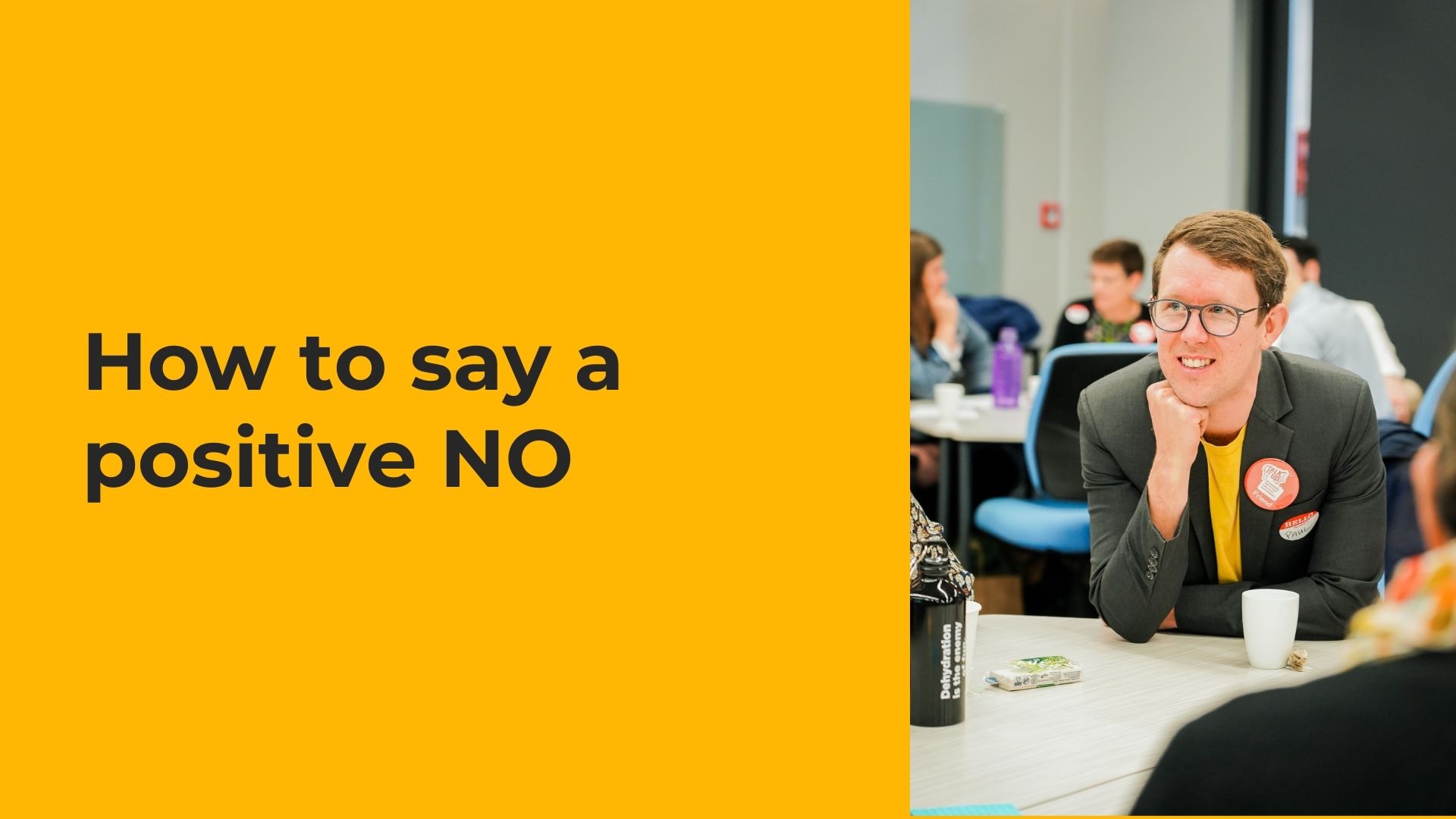|
Is your team seeking clarity? |
|---|
|
I love helping teams to get clear on their strategy and ways of working. (Often that involves saying "no" to some good opportunities, which can be tough.) Flick me an email if you're planning a team offsite and let's make sure it solves your biggest challenge right now. |
How to say a positive NO

One of the realities of leadership is you have to say "no" lots.
This morning I was making lunchboxes when my wife Ellie says: "Actually, I don't need lunch; I still have yesterday's lunch at school."
As a school teacher, this is a common occurrence. She returns home ravenous after something else took over her lunch break.
Yesterday it was parent-teacher interviews. Just as she's heading to the staffroom for lunch, her relief teacher begs for help connecting to the TV.
I had to say no," Ellie explains. "And I still feel so guilty about it!" And by the time she'd explained why, she'd missed her lunch break anyway.
Where does our aversion to "no" come from?
Last night we watched the first episode of a new documentary called Escaping Utopia. It's an eye-opening expose on the Gloriavalue Christian Community.
New Zealand's most notorious cult is rife with sexual assault. Women are expected to submit to their husbands, to work 90-hour work weeks (with no pay) and to produce as many children as possible. The leaders run the place on fear. If you question authority or step out of line you are going to hell!
It's a brutal caricature of an organisation gone wrong. But the caricature offers us an insight into the origins of our aversion to saying "no".
As tribal animals, we are driven by community and connection. We know that our survival depends on our tribe.
Saying "no" turns the heat up on our threat system. Our primal brain feels the fear and we go into fight, flight, freeze or befriend mode. The clammy hands. An increasing pulse. The lump in your throat. These physical sensations are nature's way of making us beware of saying "no" to the tribe who will keep us alive.
"In an experiment conducted by the University of Waterloo, individuals were asked to do something that went against their morals, such as damaging a library book. Even though they didn’t agree with the task, about half of them ended up doing it anyway." https://www.scienceofpeople.com/how-to-say-no/
How to say a "positive" no
A few years back I skim-read a book called The Power of a Positive No: How to Say No and Still Get to Yes by William Ury. I was working in a highly toxic work environment where everybody was treading on eggshells around two key employees.
The basic premise of the book is simple. A positive no goes like this:
Yes! No. Yes?"
Let me elaborate.
Yes!
First, we need to explain what we want to protect. What would you be losing if you said "yes"?
So you might say: "I've got 5 minutes to eat lunch before hosting a meeting."
No.
Then we explain clearly (and without insult) why we are choosing not to do what the other person has asked. "I'm not going to be able to help you right now."
Yes?
Finally, we offer an alternative.
"Jenny might be able to help. If not, search on YouTube for a help video."
Every time we say "yes", we're saying "no" to something else
Peter Drucker once said that strategy is about omission. When you're strategic, you are clear about what you're saying "no" to.
But often in leadership, it's less clear what we're saying "yes" to because we're saying "yes" to so many things. So many programmes, services, markets, needs, people, and platforms.
If you're struggling to say "no" or unsure about your "yes", then let's talk.